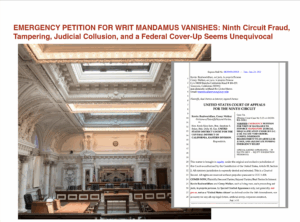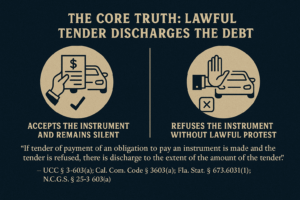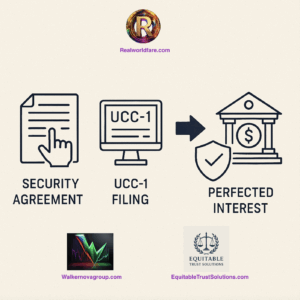1. Defining the Terms
Pro Se
- Literal Translation: “For oneself” in Latin.
- Meaning in Law: Refers to individuals who represent themselves in court without an attorney, submitting to the jurisdiction and procedural framework of the court. Pro se litigants plead their case within the established legal system, adhering to court rules and statutory laws.
- Usage: Pro se status acknowledges the court’s authority and relies on its procedures to resolve disputes. The individual operates as a recognized “person” under statutory definitions.
In Propria Persona (Sui Juris)
- Literal Translation: “In one’s own person” in Latin, often coupled with sui juris, meaning “of one’s own right.”
- Meaning in Law: Refers to individuals appearing in court as themselves, asserting their natural and inherent rights without submitting to artificial legal classifications or pleading for remedies from the court.
- Usage: In propria persona emphasizes standing as a living being rather than a corporate or statutory “person.” It rejects the need to “plead” to the court, instead asserting one’s rights as already existing and non-negotiable.
2. Fundamental Philosophical and Procedural Differences
| Aspect | Pro Se | In Propria Persona (Sui Juris) |
|---|---|---|
| Meaning | Representing oneself in court without an attorney. | Appearing as oneself, asserting natural and inherent rights. |
| Legal Interaction | Pleads to the court for a remedy under its authority. | Asserts rights without pleading or seeking permission. |
| Submission to Jurisdiction | Explicitly submits to the court’s statutory authority. | May challenge or conditionally accept jurisdiction. |
| Basis of Rights | Operates within statutory and procedural law. | Relies on natural law, constitutional principles, or inherent rights. |
| Judicial Reception | Universally recognized and accepted. | Often misunderstood, requires precise articulation to avoid dismissal. |
3. Procedural and Legal Implications
Pro Se Litigants
- Submission to Court Authority: By proceeding pro se, individuals acknowledge the court’s jurisdiction and operate entirely within its framework. They rely on procedural fairness and statutory interpretations for relief.
- Role of Pleading: Pro se litigants file motions, petitions, and pleadings, requesting the court to grant specific remedies or rulings.
- Judicial Perception: Courts are generally receptive to pro se litigants but expect them to follow procedural rules, often providing limited leniency due to their lack of legal expertise.
In Propria Persona (Sui Juris) Litigants
- Non-Pleading Status: Litigants appearing in propria persona do not “plead” to the court but assert their standing as a living being with inherent rights. They operate from a position of equality rather than subservience to the court.
- Jurisdictional Implications: These litigants may conditionally accept the court’s jurisdiction, often requiring the court or opposing party to prove authority or standing before proceeding.
- Legal Standing: By emphasizing sui juris status, individuals assert their independence from statutory classifications or corporate entities, which they argue do not apply to their natural personhood.
4. Legal Basis for In Propria Persona Assertions
Natural Law and Constitutional Foundations
- Natural Law: In propria persona litigants often ground their position in the principle that inherent rights precede and supersede statutory law. These rights are considered unalienable and not contingent on government-granted privileges.
- Constitutional Protections: The Ninth and Tenth Amendments to the U.S. Constitution are frequently cited as affirmations of individual sovereignty, ensuring that certain rights remain beyond governmental or judicial interference.
Distinction from “Persons” in Law
- Statutory definitions of “person” often include entities such as corporations or legal fictions. By appearing in propria persona, individuals assert their status as living beings, separate from these artificial constructs.
- This distinction is especially relevant in matters where jurisdiction, consent, or contractual obligations are in dispute.
5. Strategic Considerations for Self-Representation
Pro Se Representation
- Advantages: Clear, straightforward access to the legal system. Courts are accustomed to dealing with pro se litigants and provide some procedural flexibility.
- Disadvantages: Requires adherence to court rules and processes, which can be challenging for those unfamiliar with legal procedures.
In Propria Persona Representation
- Advantages: Allows individuals to challenge assumptions and assert rights without reliance on statutory classifications. This approach can be powerful in specific contexts where jurisdiction or contract law is in question.
- Disadvantages: Requires deep understanding of legal principles and precise articulation. Courts may dismiss poorly constructed documents as frivolous or irrelevant.
6. Conclusion
While “pro se” and “in propria persona” both involve self-representation, their underlying philosophies and legal implications differ significantly.
‘ Pro Se’ litigants work within the framework of the court, seeking remedies and relief through statutory law. In contrast, ‘In Propria Persona’ litigants assert their inherent rights without pleading to the court, challenging jurisdiction and emphasizing their status as a natural person.
Both approaches have their place in legal contexts, but success often hinges on the individual’s ability to articulate their position effectively and navigate the complexities of the legal system. Understanding these distinctions empowers individuals to choose the approach that best aligns with their goals and principles when representing themselves in court.




